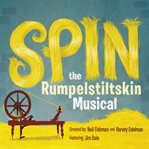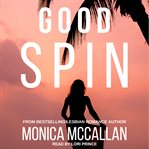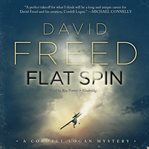Review by New York Times Review
LET US REVIEW what is so good about Denis Johnson. I have often performed this exercise, with a modicum of writerly envy, over the decades of reading his work: What exactly is the alchemical magic in these pages? Everyone who started writing seriously in the 1980s or 1990s can tell you where he or she first consumed the morsels that eventually made up "Jesus' Son," Johnson's breakthrough 1992 story collection. To behold those lines for the first time was to see language unaccountably capturing emotions in a way unfamiliar in recent American prose. Johnson once noted that he was working under the star of Isaac Babel while writing "Jesus' Son," and it showed; just as Babel saw (for example) the Russian sunset as others had not previously, Johnson transformed his misfits and heroin addicts until they became like protagonists from the time of epics. "Angels," Johnson's 1983 debut novel, was similarly revelatory - making the homely backdrop of a Greyhound bus journey suddenly appropriate to the highest American literature. If Johnson sometimes stumbled in later books (he was prolific), they were exceptions in a long, restless and varied career that included not only fiction but plays, nonfiction and some impressive poetry collections. (I recommend "The Incognito Lounge.") What made the effective books so effective? In part, it is the consciousness of mortality found everywhere in his best work. This is the guy, after all, who wrote "Resuscitation of a Hanged Man" and "Already Dead." It is the rare Denis Johnson work that doesn't explicitly take up end-of-life questions. From the death-row sequences of "Angels" to the murder and car crashes and heroin addiction of "Jesus' Son" to the Vietnam War setting of "Tree of Smoke," his 2007 National Book Award-winning novel, there is ever a wafting of mortal fumes across Johnson's paragraphs. "The Largesse of the Sea Maiden," Johnson's new and presumably final collection - he died from liver cancer in May - is no outlier. Without exception the five stories that make up this volume, averaging about 40 pages each, feature intimations of mortality. There's the former wife of the adman narrator, in the title story, who telephones to tell our man she's dying, but without specifying which former wife she is. ("In the middle of this," he notes, "I began wondering, most uncomfortably, in fact with a dizzy, sweating anxiety, if I'd made a mistake.") There are the murderous, delusional inmates of a county lockup in "Strangler Bob," and the fanciful and grim formulations about Elvis and his lost twin that haunt "Doppelgänger, Poltergeist," the last story in the volume. Throughout is Johnson's familiar anguish at our passing over. What makes "The Largesse of the Sea Maiden" different is that in this case Johnson knew his own time was short, and embarked on his material with an admirable and pitiless openness he conveys through his characters: "It's plain to you that at the time I wrote this, I'm not dead," one says. "But maybe by the time you read it." The movement across the whole of the collection echoes Dante: down, concentrically, into the revelations of illness and death, to "the phase in which these visits to emergency rooms and clinics increased in frequency and by now have become commonplace." Before it gets there, though, it sets the mood, beginning with the title story and its apparently unrelated fragments - some of them about advertising and some featuring blunt episodes of sex and death like something out of a late 1960s Jerzy Kosinski novel. This is followed by a weaker set piece about rehab, "The Starlight on Idaho"; reading it, I worried that the presumably ill and suffering author was too consumed with his difficulties to reach his most fertile core. But then comes "Strangler Bob," in which Dink, the narrator (all of the stories are in the first person), tries to reckon not only with his reduced circumstances but with a prophecy, courtesy of his cellmate in county lockup, that he and two felonious acquaintances will one day commit a murder. It's all very fun and strange, with glimmers of the old Johnson at work. And then that Johnson breaks through in a big way, in a story boldly and maybe hopefully titled "Triumph Over the Grave," and suddenly every mild reservation you might have had is forgotten. Suddenly, with exceptional luminosity, there is an unveiling. "Triumph" begins as a journal entry in a slightly stiff present tense, but then tumbles backward into a story within the story about a fellow writer the narrator (who is not quite Johnson himself, but certainly a near relation) knew in Austin, Tex., during a time of teaching creative writing. Thus the story becomes a powerful vehicle for recollections about the author's own complex life in literature: "I've gone from rags to riches and back again, and more than once. Whatever happens to you, you put it on a page, work it into a shape, cast it in a light. It's not much different, really, from filming a parade of clouds across the sky and calling it a movie - although it has to be admitted that the clouds can descend, take you up, carry you to all kinds of places, some of them terrible, and you don't get back where you came from for years and years." In dispatching the poor writer from Texas, "Triumph Over the Grave" turns to three recitations of loss, each painfully exacting. And it closes with a startlingly beautiful bedside reunion of two long-divorced lovers. The story, both ingenious and exceedingly well composed, rehabilitates literature for us, exposing its purpose anew, which, it seems to me, is precisely to cast in language the nature of being, and to leave some of this language behind for those who would have a trail of bread crumbs through the darkness. "The Largesse of the Sea Maiden," as a volume, drills down into and through what is tolerable until it hits a powerful vein of the painfully mortal and lasting. If it ends with a yawp of tragicomedy in the Elvis Presley story, "Doppelgänger, Poltergeist," it's only to remind us that Dante, too, was a toiler in the comedic fields, no matter how brutal and austere his triune cosmogony. The problem with a posthumous book is that it's hard to see the work clearly for the tragedy that orbits it. This is especially true when the author is recently deceased, or has died abruptly. The death haunts the text and prevents us from freely roaming it to draw our own conclusions; instead, we see in every exchange the hand of fate. But in "The Largesse of the Sea Maiden," Denis Johnson tries to comfort us about his impending absence, and to use his stunning gift for revelation - truly his singular skill - to brighten the interiors of tragedy and help us wave off the vultures hovering above. It need not, as he says, be so sad: "Life after death, ghosts, Paradise, eternity - of course, we take all that as granted. Otherwise where's the fun?" 'Whatever happens to you, you put it on a page, work it into a shape, cast it in a light.' RICK MOODY is the author, most recently, of the novel "Hotels of North America." He teaches at Brown University.
Copyright (c) The New York Times Company [August 30, 2019]
Review by School Library Journal Review
Gr 3-7-This new, audio-first telling of the Rumpelstiltskin story begins with the miller bragging that his daughter, Jane, can spin straw into gold. Rumpelstiltskin hears him and decides to inform the king and his greedy stepsisters about it. Jane cannot perform this miracle, but Rumpelstiltskin is there to help for a small price. The sisters become greedier, and finally Jane has nothing left to give except for her first-born child, whom Rumpelstiltskin wants because he is longing for a friend. The king and Jane soon marry and have a child, and when Rumpelstiltskin appears Jane must guess his name or lose her child forever. The humor is tongue-in-cheek-Rumpelstiltskin introduces himself as "Justin of Timber Lake" to the King's stepsisters. The songs are fun and help move the plot forward and develop the characters. The full cast, including Nick Sullivan, Khristine Hvam, Jim Dale, Nicola Barber, Johnny Heller, and John Brady, narrates superbly. Barrett Leddy plays Rumpelstiltskin with a zany, villainous voice that still manages to make him appear sympathetic at the proper times. Though the relationship between Jane and the king is not well developed, the story ends with a new and satisfying twist. VERDICT A wonderfully produced audiobook sure to be enjoyed by the entire family.-Elizabeth Elsbree, Krug Elementary School, Aurora, IL © Copyright 2018. Library Journals LLC, a wholly owned subsidiary of Media Source, Inc. No redistribution permitted.
(c) Copyright Library Journals LLC, a wholly owned subsidiary of Media Source, Inc. No redistribution permitted.



